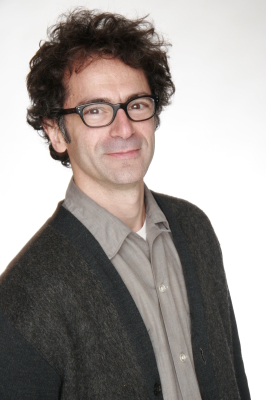A few months ago, I curiously tapped into The Talkhouse through a retweet of a retweet. Sounds about right, in this age of the interweb. I’m a huge fan of music and digging through the current archive of The Talkhouse felt similar to sifting through vinyl at a record shop; there is a lot to discover. The concept is simple: through written album reviews by some of today’s most exciting and emerging musicians, it allows us as readers to listen along with the same kind of incredible insight and energy inherent to these fervent musicians (think: Lou Reed reviewing Kanye’s Yeezus). What blew me away even more is that Michael Azerrad — iconic music journalist, author of Come As You Are: The Story of Nirvana and Our Band Could Be Your Life: Scenes from the American Indie Underground 1981–1991, and editor of Bob Mould’s autobiography See a Little Light: The Trail of Rage and Melody — is the brainpower behind the Talkhouse operation. This site is perfect, I remember thinking. Needless to say, we’re absolutely thrilled that Michael Azerrad shares his response to our One Question below. —JL

Michael Azerrad
What one book or piece of writing has changed the way you think about your own work?
A long time ago, a book called Exercises in Style rocked my writerly world. It’s by the brilliant French writer Raymond Queneau, and it was first published in the late ’40s. It’s the same simple little story — the narrator gets on a bus, sees a man with a long neck and an odd hat squabble with another passenger, and then, later in the day, happens to see the same man getting advice about adding a button to his overcoat — told in 99 different ways, using various rhetorical devices, such as homeoptotes, past tense, haiku, interjections, metaphor, spoonerisms, telegraphic style, etc.
I only half-jokingly call Exercises in Style “the most terrifying book ever written” — at least for writers — because it so mercilessly drives home the fact that there is a seemingly limitless number of ways one can convey the same idea. And so it forces you to consider the effect of the affect of your writing — in other words, it’s not just what you say, but how you say it. That’s a very difficult, even ineffable thing to grapple with, and it’s one of the things — maybe even the thing — that separates great writers from merely good ones.
At first, facing up to that myriad of options is practically paralyzing — you don’t know which of a thousand ways to go, so you get stuck. But then, gradually, you recognize your own voice and its boundless possibilities. And then you really become a writer.
That book is very small and yet very huge.![]()
@the_talkhouse